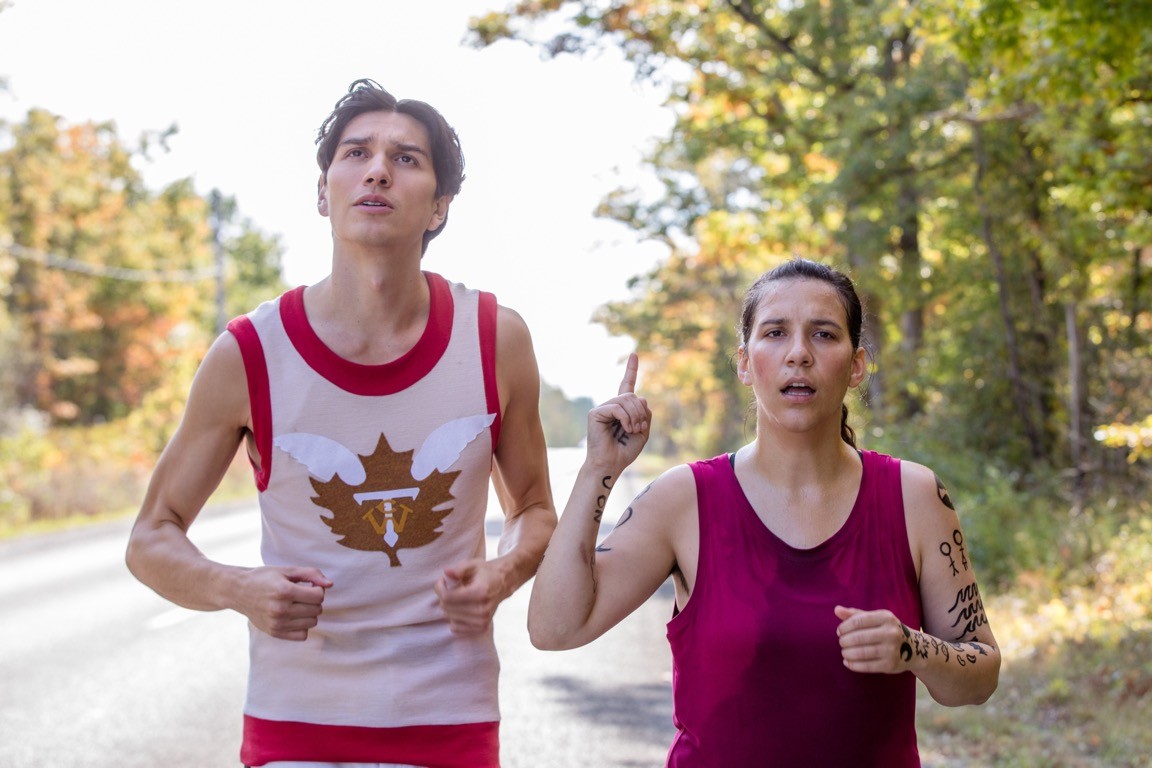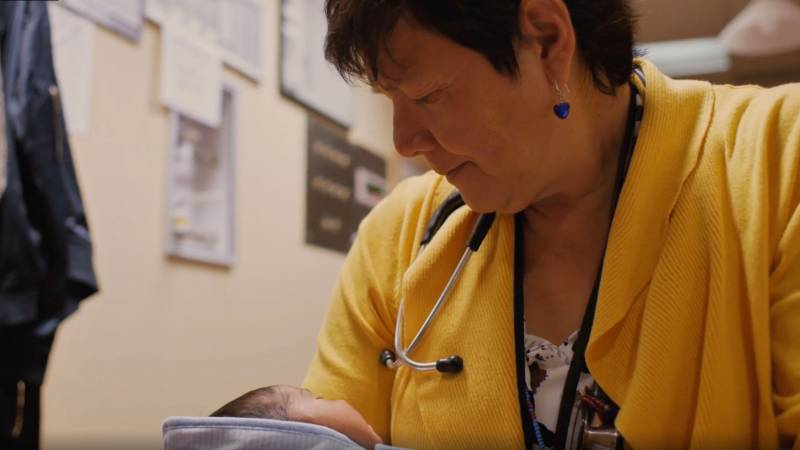A remarkable 46 years into its sometimes tenuous existence, the American Indian Film Festival is having a moment. You might call it a virtual high point, as the program streams coast-to-coast online Nov. 5–13. But there’s a real-world headline, too, readily discernible from the breadth of the lineup: Great numbers of Native American and First Nations filmmakers are sharing stories on film.
Fiction is where a lot of the excitement is, largely because the Native North American point of view has been—and still is—largely ignored by Hollywood and the commercial film industry. The Six Nations heroine of writer-director Zoe Hopkins’ Run Woman Run is a mess, living in her childhood home with her father and young son and toasting her failed ambitions with heaps of junk food. Beck (Dakota Ray Hebert) has a sharp tongue (like every underachieving malcontent in the history of movies) and a solid family, but you know what they say: When you’re stuck, you’re stuck.
Run Woman Run maintains Beck’s tone-deafness and willful denial a good long while. In the film’s most graceful and appealing development, she is befriended by the inspiring ghost of Tom Longboat, the real-life Onondaga champion marathon runner of the early 1900s. He helps her find her footing, and a connection to her identity based on pride rather than familial obligation. In fact, Beck’s engine was internal; she just needed a kick-start.

Haudenosaunee writer-director Jessie Anthony digs an even deeper hole for her protagonist, an addict and car thief, in Brother, I Cry, which has garnered awards for the Canadian filmmaker and lead actor Justin Rain. His path out of trouble is lit by the various women in his life—his pregnant girlfriend, sister and mother—but, of course, no one can take the first and most difficult steps except him.
Canada is also represented on the nonfiction side, notably with Kímmapiiyipitssini: The Meaning of Empathy. The latest documentary from actress-writer-director Elle-Máijá Tailfeathers (The Body Remembers When the World Broke Open) is a far-ranging yet intimate look at the various treatments and countermeasures to drug addiction in the Kainai reserve, with the filmmaker’s stalwart mother, Dr. Esther Tailfeathers, as our guide.


